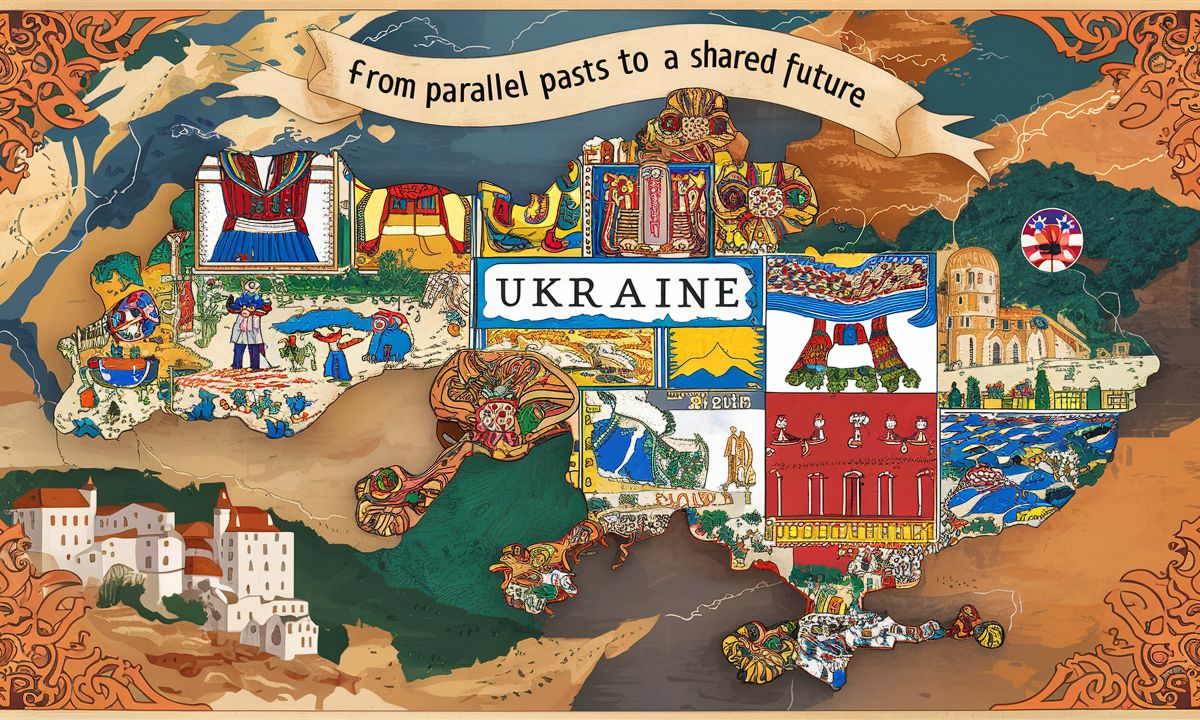Introduction
As Europe faces an evolving geopolitical landscape, the strategic importance of Ukraine and the Western Balkans is more evident than ever. With shared historical challenges, similar post-Soviet economic structures, and common aspirations for European Union (EU) integration, these regions are forging stronger ties. What were once parallel paths of transition are now converging into a collective journey toward stability, security, and prosperity.
A Shared History of Transition
Ukraine and many Western Balkan countries such as Serbia, North Macedonia, Bosnia and Herzegovina, and Albania underwent post-communist transitions, dealing with economic collapse, internal conflict, and international isolation in the 1990s. Their experiences created a foundation for mutual understanding, with both regions tackling issues such as:
- State-building and democratization
- Corruption and institutional reform
- Security and border stabilization
- Economic reconstruction
This historical parallelism forms the basis for strong diplomatic and political empathy between the two regions.
The Role of EU Integration
A shared future within the European Union is the most significant connecting thread between Ukraine and the Western Balkans. Both regions have long viewed EU accession as the ultimate strategic goal to ensure lasting peace, economic growth, and democratic consolidation.
| Country | EU Status | Key Milestone | Target Timeline |
| Ukraine | EU Candidate (2022) | Candidate status granted | Accession talks ongoing |
| Serbia | EU Candidate | Negotiation chapters opened | 2025–2030 |
| North Macedonia | EU Candidate | Accession talks launched in 2022 | 2025–2028 |
| Albania | EU Candidate | Negotiations underway | 2025–2030 |
| Bosnia & Herzegovina | Potential Candidate (applied 2016) | Candidate status granted (2022) | TBA |
Strategic Diplomacy and Summits
In recent years, Ukraine-Southeast Europe summits have become more frequent, focusing on:
- Coordinated cybersecurity efforts
- Joint appeals for accelerated EU enlargement
- Defense cooperation in response to Russian aggression
- Shared economic and infrastructure development plans
These summits reflect an emerging regional bloc mentality, amplifying both Ukraine’s and the Balkans’ voices within the EU.
Facing Shared Cyber Threats
One of the key challenges uniting both regions is cybersecurity. With Russia’s increasing influence in Eastern Europe and hybrid warfare strategies, Ukraine and the Western Balkans have experienced:
- Cyberattacks on energy infrastructure
- Disinformation campaigns
- Election interference
- Digital propaganda on social media
To counter these, they’ve begun collaborating on cyber resilience, participating in EU cybersecurity exercises and partnering with NATO on digital defense frameworks.
Economic Integration Opportunities
Ukraine and the Western Balkans have also been working on economic integration initiatives, such as:
- Trade and customs harmonization with EU standards
- Joint transport corridors like Pan-European Corridor VIII
- Cooperation in energy security and diversification
- Development of technology innovation zones and agriculture hubs
These partnerships are aimed at reducing dependency on Russian markets while building a sustainable future within the European single market.
United under the European Project
What unites these regions more than history or economic goals is the ideological alignment with the European project. This includes:
- Rule of law
- Human rights
- Freedom of expression
- Free-market principles
Both Ukraine and Western Balkans are actively participating in EU programs such as Horizon Europe, Erasmus+, and Digital Europe, laying the groundwork for societal alignment and mutual growth.
FAQs
What do Ukraine and the Western Balkans have in common?
Both have undergone challenging post-communist transitions and share a desire for democratic governance, rule of law, and integration into the EU. Their histories are marked by conflict, economic instability, and international aid dependency—leading to mutual empathy and partnership opportunities.
How is cybersecurity impacting the relationship?
Cyber threats from Russia have made both Ukraine and the Balkans aware of their digital vulnerabilities. As a result, collaboration on digital defense, EU cybersecurity standards, and NATO cooperation has intensified in recent years.
What role does the EU play in this relationship?
The EU acts as a unifying goal and a framework for reform. Both regions rely on EU guidance for legislation, trade policies, and development projects. EU membership is considered a stabilizing force for the future of both.
Are there active economic projects between them?
Yes, Ukraine and the Western Balkans are working on shared transport routes, digital economies, and energy diversification plans. These projects aim to strengthen interconnectivity and prepare the regions for full EU integration.
What is the future outlook for Ukraine and the Western Balkans?
The outlook is cautiously optimistic. Despite the challenges of war, slow reforms, and internal political divisions, the shared vision of joining the European Union is pushing both regions toward deeper cooperation and alignment.
Conclusion
The convergence of Ukraine and the Western Balkans from parallel pasts to a shared future is not just symbolic—it represents a shift in Europe’s geopolitical architecture. The EU’s growing role in shaping their reforms and security frameworks underlines a powerful alignment toward a stronger, united, and democratic Europe.
With increased cooperation in cybersecurity, economic development, and regional diplomacy, Ukraine and the Western Balkans are no longer just neighbors with shared history—they are becoming strategic allies forging a common destiny in the European project. This collaboration signals hope, resilience, and determination for a future rooted in unity, peace, and prosperity.

I m John Nicker a Content Writer and SEO Expert with 5 years Experiness. I have Already work on BBC News Website.
















